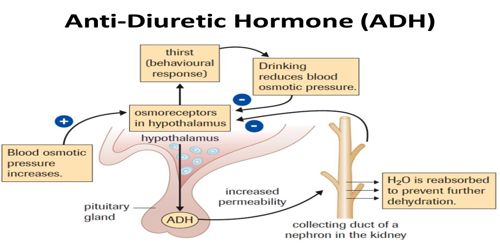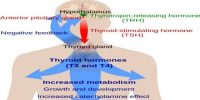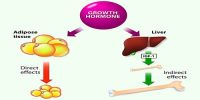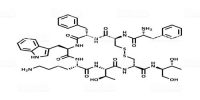The function of the action of an Antidiuretic hormone (ADH)
The Antidiuretic hormone (ADH) is a hormone that helps your kidneys manages the amount of water in your body. It tells your kidneys how much water to conserve. It is one of only two hormones secreted by the posterior pituitary gland in the brain.
Source: ADH is primarily (5/6th) in the supraoptic nuclei and secondarily (1/6th) in the paraventricular nuclei. The normal range for ADH is 1-5 picograms per milliliter (pg/mL).
Chemical nature: ADH is a polypeptide containing 9 amino acids. ADH levels that are too low or too high can be caused by a number of different problems.
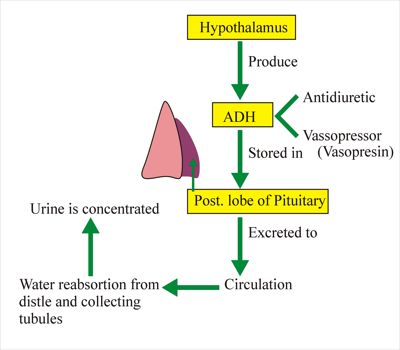
Fig: Function of action of an Antidiuretic hormone
Functions –
Retention of water by the kidney:
The principal physiologic effect of ADH is the retention of water by the kidney by stimulating reabsorption of water by the distal convoluted and collecting renal tubules.
Effect on blood vessels and blood pressure: It increases the blood pressure due to the contraction of the blood vessels, arterioles, and capillaries.
Effect on heart: It increases the blood pressure.
Muscle contraction: It causes the contraction of a smooth muscle-like ureter, urinary bladder, intestine, etc.
On respiration: Hyperpnoea with occasional apnea. This is due to changes in blood pressure with reflex acts on the respiratory center.
Metabolic effect: ADH produces glycogenolysis (in the liver), hyperglycemia, and glycosuria. Sugar tolerance is reduced. The effect is only a secondary one.
Neurotransmitter: It is NT in the brain and spinal cord.
Tropic action: It increases ACTH secretion from the anterior pituitary gland by its action on V3 receptor, (V18).
